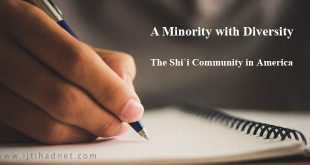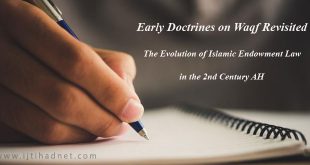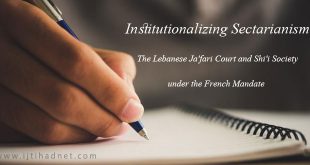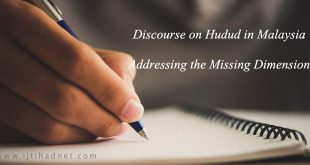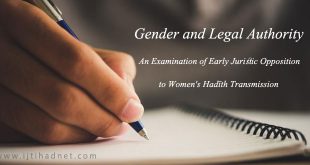Research on the Shia in Scotland and of their spaces of worship and gathering continues to be under represented in the research field of Muslims in Britain. According to the 2011 census, there are...
Read More »A Minority with Diversity: The Shiʿi Community in America
This article will argue that divisions within the American Shiʿi community are often exacerbated by the establishment of ethnic institutions that act as cultural buffers...
Read More »Early Doctrines on Waqf Revisited: The Evolution of Islamic Endowment Law in the 2nd Century AH
This study examines the early development of waqf doctrine, based on sources from the 2nd century AH, the writer argues that the institution of waqf emerged from a fusion of two earlier institutions....
Read More »Article: Human Cloning through the Eyes of Muslim Scholars
This article gives a comprehensive analysis of these conferences, the relation between science and religion as reflected in the discussions there, and the further influence of these discussions on Muslims living in...
Read More »Institutionalizing Sectarianism: The Lebanese Ja’fari Court and Shi’i Society under the French Mandate
The formal recognition of the Jaʿfari madhhab in Lebanon in January 1926 and the subsequent development of a state-led court system by the...
Read More »“Fantastic Charities”: The Transformation of Waqf Practice in Colonial Zanzibar
The present study examines the impact of British colonial rule on traditional waqf practice in the Sultanate of Zanzibar. The writer shall argue that British policy towards waqf in Zanzibar was shaped by a combination of...
Read More »Discourse on Hudud in Malaysia: Addressing the Missing Dimension
Implementation of Islamic criminal law particularly of the hudud at present time, beyond its politics, raises numerous juridical problems of substantive law, procedure and...
Read More »Gender and Legal Authority: An Examination of Early Juristic Opposition to Women’s Hadīth Transmission
This article analyzes two cases of early juristic opposition to the legal authority of hadīth narrated by women...
Read More »Article: Negotiating Muslim–Christian Relations in Kenya through Waqfs, 1900–2010
The article draws mainly on the perspective of the Muslim minority in Kenya and argues that state control of waqfs in Kenya did not only interfere with normative practices but also partly laid the ground for the present-day economic and political marginalization and exclusion of...
Read More »Prisoners of War: A Comparative Study of the Principles of International Humanitarian Law and the Islamic Law of War
The treatment of prisoners of war (POWs) has been an issue of concern to all those engaged in armed conflict for centuries. The problem of how to deal with POWs is not a new one and their treatment is a question with which the laws of war have been particularly …
Read More » Ijtihad Network Being Wise and Faithful Muslim in the Contemporary World
Ijtihad Network Being Wise and Faithful Muslim in the Contemporary World

